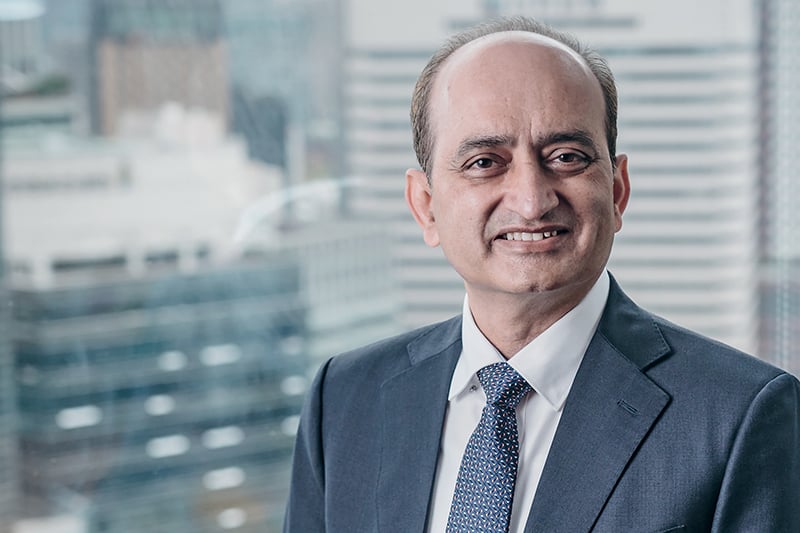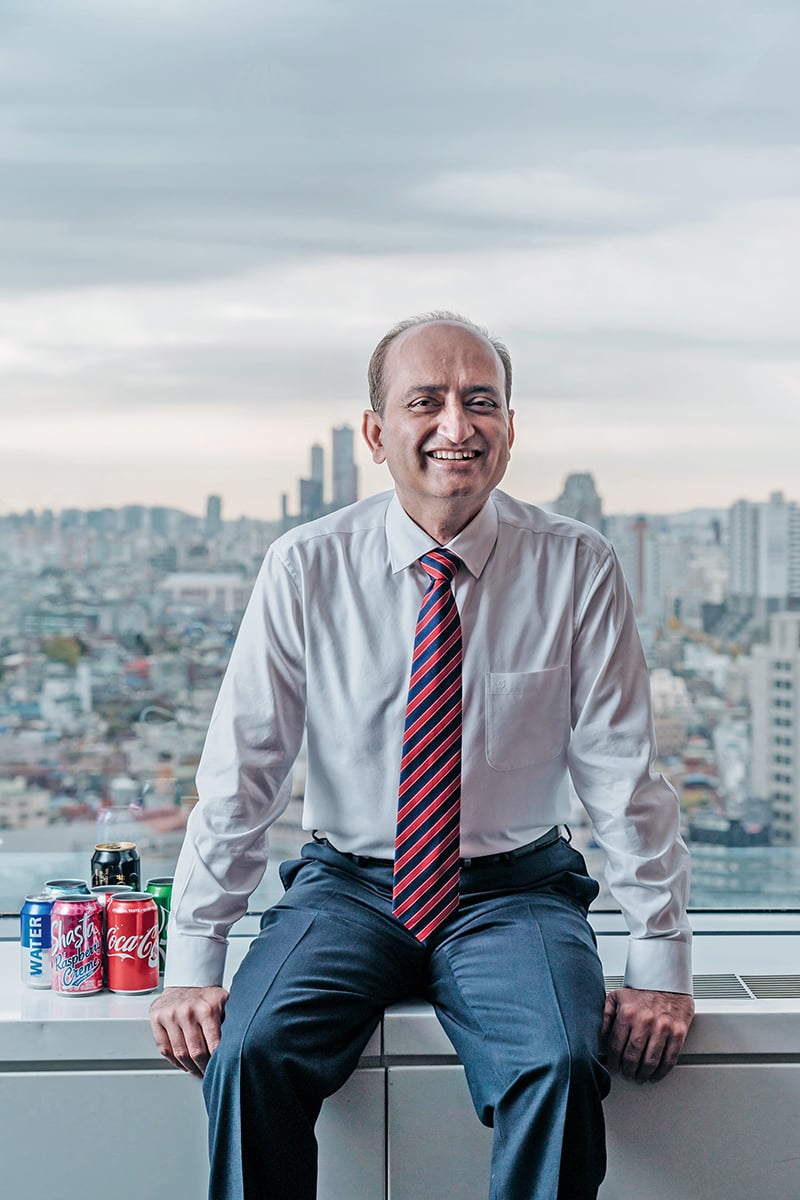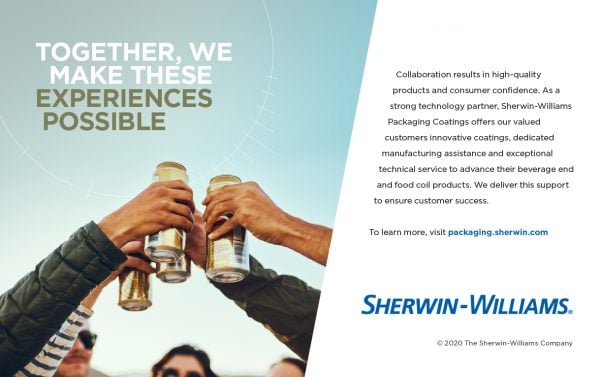Light, strong and perfect for myriad applications. So says Sachin Satpute, President of Novelis Asia and Senior Vice President of Novelis, a global leader in rolling and recycling aluminium. Aluminium is, he declares, a product of the future because of its status as a “green metal”.

Sachin has spent three decades working in aluminium manufacturing in Asia, and now leads Novelis Asia in its quest to be the predominant manufacturer in the region. “I’ve been in Seoul for four-and-a-half years because our headquarters are here.
We have manufacturing operations in Korea and China, and we have offices in Seoul, Shanghai, and Dubai. We also have a joint venture company called Ulsan Aluminium in Korea, with Kobelco or Kobe Steel Japan,” he says.
Sachin began his career 30 years ago as a shopfloor engineer in an extrusion plant. After a period in sales and marketing, he went to Novelis in business development and strategy. He moved from there to ALCOM Malaysia as Managing Director.
“It was a smaller company, but it gave me a very good experience, and as a business leader,” he recalls. “Then in 2012, I moved back to the parent company, Hindalco, as Chief Sales and Marketing Officer. In 2016, I came back to Korea and Novelis. So this is my second stint with Novelis. It’s been a long journey in the aluminium industry, but I’m happy with it.”
Aluminium production is very energy-intensive, which has exerted a lot of pressure on its producers in an age of energy conservation. Sachin has seen great change over the years as the industry struggled to be more efficient in energy consumption and in its management of waste by-products.
The energy consumption required to produce a tonne of aluminium is now the focus in the industry, he explains, alongside greenhouse gas emissions, or the carbon footprint, of aluminium. “It’s come a long way,” he says.
“In my view, what is going to drive its future is sustainability in the industry. The biggest trend is recycling aluminium. “It has the unique characteristic that it can be recycled many times – virtually infinitely – without losing its properties. And you can actually recycle aluminium using just 5% of the energy required to produce the primary aluminium. So this is a great advantage – you don’t lose its properties, you’re environmentally friendly, your circular economy is there, plus you are reducing your carbon footprint. That is going to be the biggest trendsetter in the industry – the recycling and the sustainability are going to drive aluminium consumption.”
Many industry leaders agree that, in the future, more than 80% of the aluminium produced will be recycled. Interestingly, more than 75% of all aluminium ever produced is still in use.
“Those statistics show how recyclable aluminium is, and our effort should be to raise that 75% to as high as possible. Nothing should go to landfill,” Sachin insists.
“I want to extend that to our customers. Our biggest and most used segment is packaging. The advantage of aluminium packaging is you can have a huge recycled content – as high as over 90% – in some cans if you manufacture it properly.”
What keeps me in this industry is the challenge of developing new applications.
A second consideration is the recycling rate. In developed countries, there are processes in place to collect used beverage cans as scrap and recycle them, but there are many countries where recycling or scrap collection doesn’t occur and it goes to landfill.
“Where scrap collection systems are in place, it’s more economical and value-adding to collect the scrap and send it out for recycling,” Sachin says.
“Our second segment is automotive. We are seeing a big change as countries put a focus on fuel consumption. Government legislation is now helping car manufacturers to move towards lighter solutions, and aluminium is the perfect answer to that. And within automotive, there is a new trend emerging: electric vehicles. Tesla is leading the change, but China is now producing the largest number of electric vehicles in the world. That’s where aluminium offers even better solutions,” he explains.

Novelis’ third major market segment is electronics. Aluminium is used in gadgets like tablets, notebooks and smartphones, which many people now find essential. Working remotely during the pandemic has only emphasised this. Sachin sees huge potential in this sector for aluminium and new applications are surfacing constantly.
“Our vision is to lead the aluminium industry as a partner of choice for innovative and sustainable solutions,” he says. “We can achieve this with what we call a threeprong strategy. Number one is defending our core market, number two is strengthening our product portfolio, and number three is investing in growth opportunities.”
Sachin’s decades-long career in aluminium production hasn’t dimmed his enthusiasm for the metal’s potential in making a real-world difference to people’s lives. He is confident that aluminium has a long way to go in the near future as new opportunities arise for its use.
“I always say aluminium makes the world lighter and brighter, and that makes my career brighter,’ Sachin beams. “I think I have had huge opportunities in this industry and so, personally, I am very satisfied and passionate about it.
“Aluminium is a ‘green’ metal because it’s a very sustainable product. What keeps me in this industry is the challenge of developing new applications. There are huge opportunities to promote it for use in other applications in the automotive, aerospace, packaging and electronics industries. These factors make me more passionate about this industry and encourage me to stay.”
The COVID-19 pandemic has highlighted Sachin’s unique approach to leadership. He recounts how many of his coaches and senior leaders pointed out that his leadership style is like a mobiliser. It’s about analysing choices, bringing them into the fold and then moving through collective action as a team.
“My greatest strength is connecting with people – that includes teamwork, collaboration, understanding multicultural organisational needs, engaging with stakeholders, ethical dealings and a long-term relationship approach,” he says.
“The way we have responded to the COVID-19 situation by keeping our work disciplined and mobilising our resources helped us to understand the issues of all our stakeholders.
“More importantly, our focus and disciplined approach to safety, and prioritising the health of the employees were experiences that I learned lessons from. I enjoy handling challenges and crisis situations, as you learn through every situation.”
He says it’s a lesson he learned at a very young age at school, when his teacher made him a class monitor – a role in which, he confesses, he was an utter failure.
“That’s when my teacher gave me simple advice. She said, ‘Seek commitment, don’t seek compliance,’” Sachin recalls, smiling. It’s a valuable lesson Sachin has kept at the top of his mind throughout his career.
Proudly supported by:



